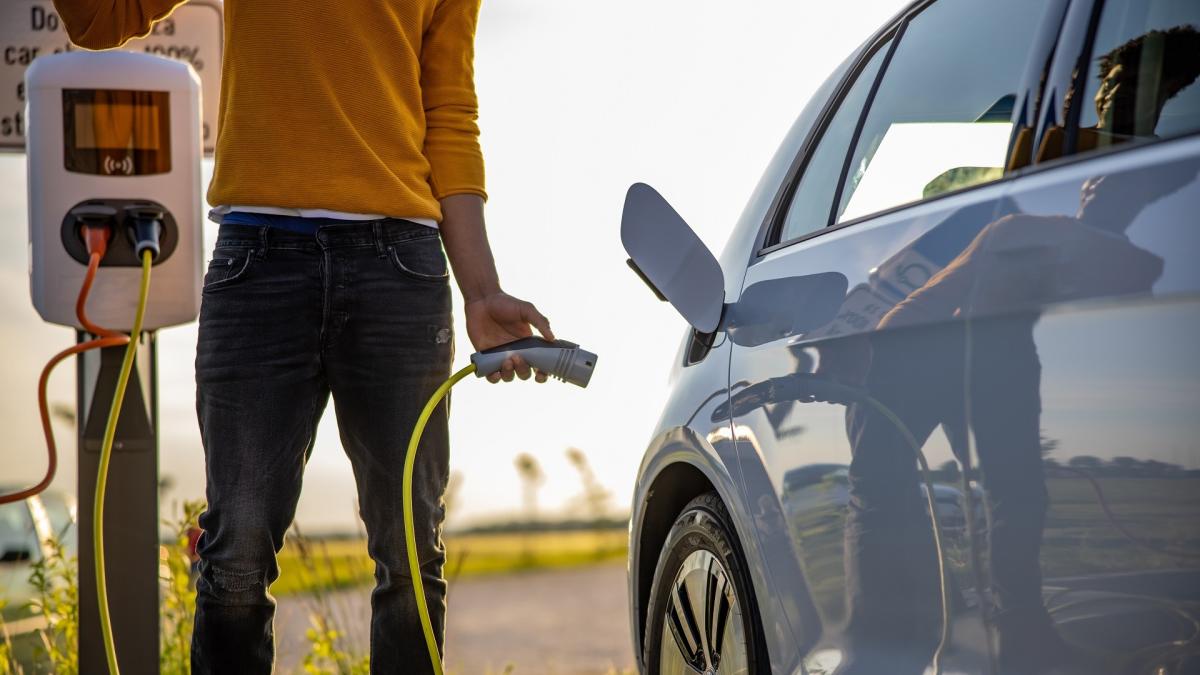Buying an electric vehicle sounds like a smart move. No more gas costs, reduced maintenance and some tax credits. However, there are hidden expenses that can catch new EV owners by surprise.
GOBankingRates spoke to Marcus Griswold, founder of Calm Waters Group, who has been driving a Volkswagen ID.4 for two years now. He shared the expenses he wasn’t prepared for after purchasing an EV. While he’s still happy with his purchase, he has learned firsthand that going electric doesn’t mean no expenses.
Check Out: Here’s How Much Cars Made in the US Cost Compared to Mexico, Canada and China
Read Next: 6 Big Shakeups Coming to Social Security in 2025
Tires Wear Out Much Faster
Electric vehicles are way heavier than gas-powered cars due to their battery packs. This puts more pressure on the tires, wearing them out faster. Additionally, the instant torque delivery that makes EVs so fun to drive can be harsh on rubber.
“The one that hit me was the tires,” Griswold said. “Before I replaced my front tires, they were starting to flake chunks of rubber within 17,000 miles.”
This accelerated wear means EV owners need to replace tires more frequently, translating to hundreds of extra dollars in tire costs yearly.
See More: 10 Cars That Outlast the Average Vehicle
Unpredictable Public Charging Costs
You might think charging an electric car is cheaper than buying gas, but public charging costs can cost just as much and sometimes more, depending on where you are.
“In California, the cost to fill up a tank of gas is about the same cost I see to ‘fill up‘ my battery,” Griswold noted.
Charger Installation
While Griswold didn’t install a home charger, it’s worth noting that many EV owners do, and it’s not cheap. Installation can cost hundreds or even thousands of dollars. However, some utility companies are developing programs that support reduced costs for EV charger installation.
“I was offered either three free years of charging or a charger installation discount from VW,” said Griswold.
Insurance and Registration
EVs tend to be more expensive upfront, and insurance companies typically charge more premiums based on the vehicle value.
“Even though I received the rebate, my insurance and registration costs are higher,” Griswold said.
Battery Replacement Worries
While most EV batteries are built to last eight or more years, replacing one outside warranty can cost thousands of dollars.
“Fortunately I have not had to change my battery, but that’s also looming in the background,” said Griswold.
This burden affects many EV owners who find themselves constantly monitoring battery health and range, knowing that a major expense could be waiting down the road.
More From GOBankingRates
This article originally appeared on GOBankingRates.com: I Bought an EV: 5 Expenses I Wasn’t Prepared For
